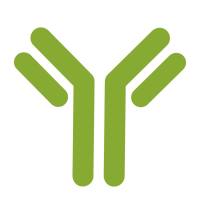Regulation of Interferon Regulatory Factor 3-Dependent Innate Immunity by the HCV NS3/4A Protease
互联网
互联网
相关产品推荐

Recombinant-Microcin-J25-export-ATP-bindingpermease-protein-McjDmcjDMicrocin-J25 export ATP-binding/permease protein McjD Alternative name(s): Microcin-J25 immunity protein Microcin-J25 secretion ATP-binding protein McjD
¥13930

Trefoil factor 3 多克隆抗体 23277-1-AP
¥1350

C1orf106/C1orf106蛋白Recombinant Human Innate immunity activator protein (INAVA)重组蛋白C1orf106; CA106_HUMAN; Chromosome 1 open reading frame 106 ; FLJ10901; Uncharacterized protein C1orf106蛋白
¥1500

LON PROTEASE 兔多抗
¥800

HCV NS3 Rabbit pAb(bs-0219R)-50ul/100ul/200ul
¥1180
相关问答

